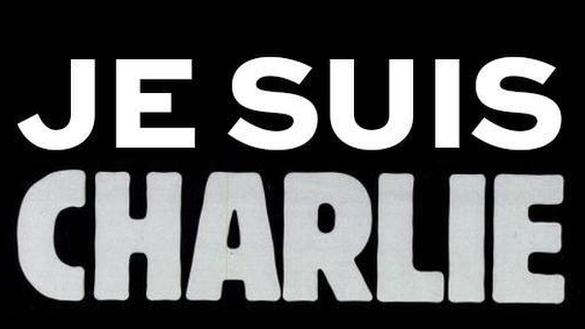Charlie Hebdo: Is all forgiven now?
- Published
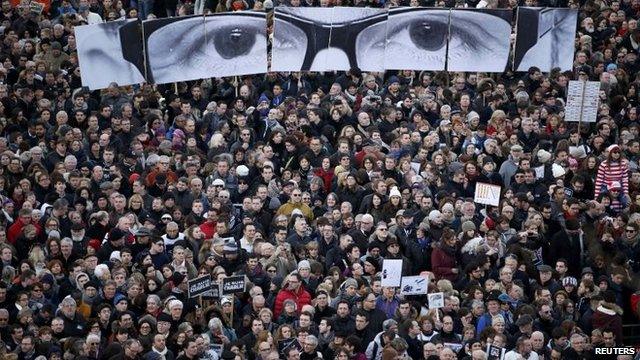
"Tout est pardonné" reads the latest Charlie Hebdo front page, but is all really forgiven?
If you didn't know before, you certainly do now that depicting the Prophet Muhammad is considered extremely offensive to many Muslims worldwide.
So you might have expected to see more reaction on social media to Charlie Hebdo's latest front cover design featuring a cartoon of the Prophet. But it all seems to have gone a bit quiet.
Even Muslims who've taken offence seem to be puzzled by the lack of online protests.
Mohsin Ali, from Karachi, Pakistan rhetorically asks "where is the Muslim Ummah? (community), external."
Why might this be? Mathieu, who lives in the Paris suburbs, waded into a Twitter thread with a Muslim and non-Muslim. He says his Muslim friends in Paris are "fairly observant: no alcohol, no pork, celebrate Ramadan, etc. but don't wear hijab," and aren't particularly offended by the cartoon because they have accepted that non-Muslims act differently to them and "don't follow Muslim rules."
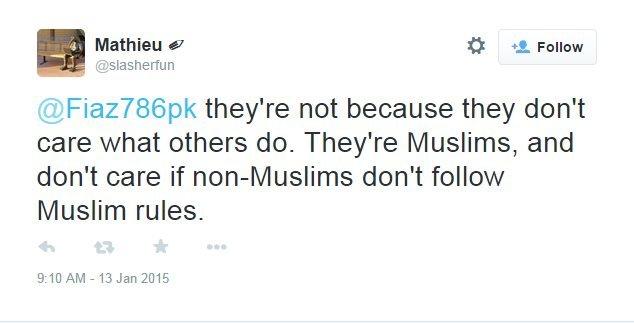
Similarly, feminist blogger @talatyaqoob, external said that as a Muslim living in Scotland she wasn't offended by the cover, though she was offended by the action of the terrorists, external.
Of course there are some people who are very upset by the depiction of the Prophet, external - @Egyptocracy tweets that even if Muhammad himself was to hold the sign, nothing would be forgiven because depiction of him is against Islam.
Egypt's Grand Mufti, external has also warned the cover will incite hatred, but the response on social has been fairly "muted", says New York-based freelance journalist Ahmed Shihab-Eldi.
He tweets, external: "The new cover of #CharlieHebdo would've been even more powerful had the cartoon depicted the Prophet carrying a sign that read #JeSuisAhmed," a tag that sprang up to honour the Muslim policeman killed by the attackers.
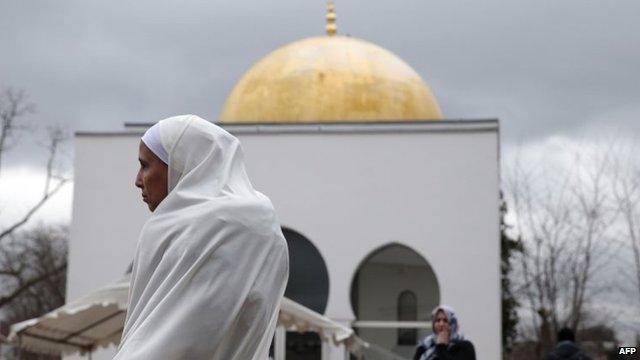
Mourners at the funeral of police officer Ahmed Merebet, the Muslim police officer killed during the Charlie Hebdo attacks
"The terrorists want us to believe that a French-Muslim identity is an inherent contradiction. We must curtail this 'otherisation,'" he adds.
"The reaction in the Arab world to this cover is varied obviously, but I haven't seen a big response."
One hashtag has grown since the cover design was released; #AllButOurProphet (#)الا_رسول_الله
It has had about 1,200 tweets in the past 24 hours in Arabic and 1,700 tweets in a French version, Touche_Pas_A_Mon_Prophete - by contrast the #JeSuisCharlie hashtag has been repeated about 7m times.
A sample tweet from @Mohamaddyasser5, external using the #AllButOurProphet hashtag reads: "I feel for a while now they have been trying to see to what extent we will hold on to our values and morals, and failing this test gives them cause to push the boundaries further."
The BBC - contrary to some reports, external - is using pictures of the latest Charlie Hebdo front cover, albeit in a limited way, mainly on TV programmes.
"The BBC is a news organisation committed both to free speech and respecting our audiences in the UK and around the world," the corporation press office said in a statement. "We have made the editorial judgment that the images are central to reporting the story and will continue to report the story in a careful and considered manner."
Blog by Mai Noman and Sitala Peek
You can follow BBC Trending on Twitter @BBCtrending
All our stories are at bbc.com/trending
- Published13 January 2015
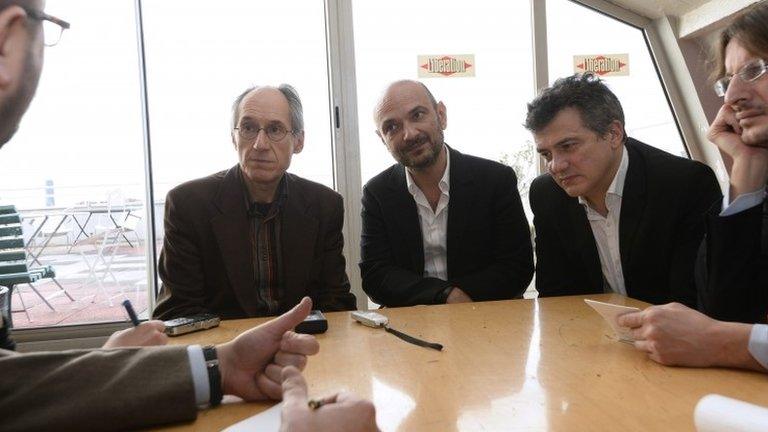
- Published13 January 2015
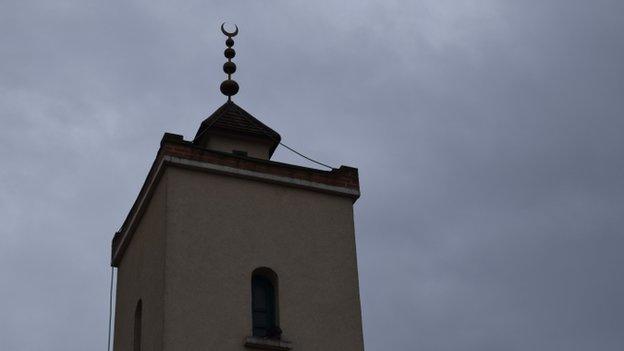
- Published8 January 2015
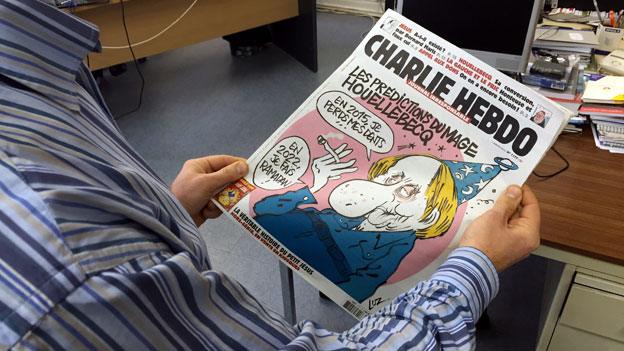
- Published7 January 2015
